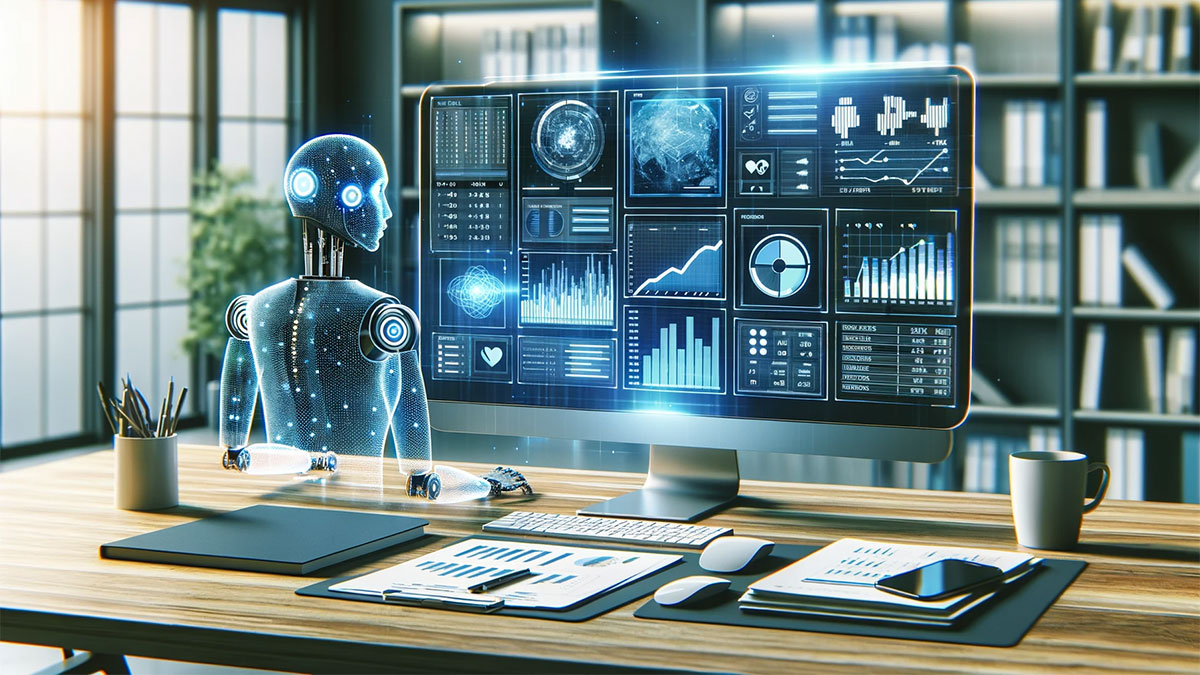In a world increasingly influenced by artificial intelligence, certain professions stand resilient against the wave of automation. These jobs, often characterized by their requirement for human empathy, creativity, and complex decision-making, remain crucially manned by humans. Let’s delve into some key professions where AI is unlikely to take over.
Varieties of AI-Resistant Jobs
While AI has made significant inroads in various sectors, there are areas where the human touch is irreplaceable. From healthcare to creative arts, these professions demand a blend of emotional intelligence, creativity, and specialized skills that AI cannot replicate. However, it’s important to note that AI can still play a supportive role in these fields, enhancing rather than replacing human expertise.
1. Healthcare Professionals
Empathy in Patient Care
Healthcare is profoundly reliant on human interaction. Nurses, doctors, and therapists provide a level of care and empathy that is fundamentally human. AI can assist with diagnostics and data analysis, but the emotional support and understanding offered by healthcare professionals are irreplaceable.
Complex Decision-Making
Medical professionals are often faced with complex, life-altering decisions. These decisions go beyond mere data analysis, requiring a deep understanding of human biology, psychology, and ethics. AI may offer insights, but the final judgment rests with human professionals, who can weigh a myriad of factors in their decision-making process.
2. Legal Professionals
Interpreting the Law
The legal field is steeped in complex human contexts and societal norms. Lawyers and judges interpret laws and legal precedents, a task that requires not just knowledge, but also an understanding of human behavior and societal impact. AI’s current capabilities are limited to providing support in research and data analysis.

Advocacy and Ethical Considerations
Legal advocacy involves nuanced communication, persuasion, and ethical considerations, often in high-stakes situations. AI cannot understand these nuances and the ethical dilemmas that legal professionals navigate daily.
3. Creative Professionals
Artistic Originality
The creative domain, encompassing artists, writers, and designers, thrives on originality and emotional depth. While AI can mimic certain artistic styles, it cannot replicate the human experience and creativity that fuel original art.
Cultural Sensitivity
Understanding and incorporating cultural nuances is a hallmark of great art. Human artists draw on a rich tapestry of history, personal experiences, and cultural understanding, something AI is far from achieving.
4. Education Professionals
Adaptive Teaching
Educators adapt their teaching methods to suit diverse learning styles. This level of personalization, understanding student needs, and fostering a conducive learning environment are aspects AI cannot replicate.
Emotional and Social Guidance
Teachers play a pivotal role in the emotional and social development of students. The mentorship and guidance they provide, essential for holistic development, are beyond the scope of AI.
5. Emergency Responders
Handling Unpredictability
Emergency responders, like firefighters and paramedics, operate in highly unpredictable and hazardous environments. They make split-second decisions, often based on intuition and experience – a realm where AI currently cannot operate effectively.
Human Compassion in Crises
In crises, the human touch, empathy, and understanding provided by emergency responders can be as crucial as their technical skills. AI cannot offer emotional support and reassurance in such situations.
6. Skilled Trades
Manual Skill and Adaptation
Trades like plumbing, carpentry, and electrical work require a level of manual dexterity and adaptation to unique situations. AI and robotics find it challenging to replicate these hands-on skills and the on-the-fly problem-solving they often entail.
Real-Time Problem Solving
Skilled trades frequently involve solving unforeseen problems in real time. AI cannot improvise in diverse physical environments, a key skill for tradespeople.
7. Mental Health Professionals
Deep Empathy and Understanding
Mental health professionals need to deeply understand and empathize with human emotions. The subtleties of human psychology and the personalized approach required in therapy are far beyond AI’s capabilities.

Tailoring Therapeutic Approaches
Each patient in therapy requires a unique approach, tailored to their specific needs and circumstances. This level of personalization demands human intuition, empathy, and experience.
8. Research Scientists
Innovation and Creative Problem-Solving
Fields like physics, chemistry, and biology require innovative thinking and creative problem-solving. Scientists often rely on intuition and a deep understanding of their field, something AI cannot replicate.
Hypothesis Formulation and Testing
The process of formulating and testing hypotheses in scientific research involves abstract thinking and a level of intuition beyond AI’s current abilities. The human scientist’s role in driving innovation and discovery remains secure.
And 5 Jobs That AI May Replace
1. Manufacturing Automation
In manufacturing, AI-driven robots and automated systems are taking over repetitive tasks, significantly reducing the need for manual labor. This shift is leading to a transformation in the manufacturing workforce.
2. Customer Service Chatbots
AI-powered chatbots are increasingly handling customer service inquiries, diminishing the demand for human customer service representatives. This change is reshaping the landscape of customer support.
3. Transportation and Delivery
The rise of autonomous vehicles and drones is transforming jobs in transportation and delivery. This evolution is reducing the need for human drivers and delivery personnel in various logistics roles.
4. Data Entry and Analysis
AI algorithms are automating tasks like data entry, analysis, and report generation, which were traditionally done by humans. This development is particularly impactful in sectors that rely heavily on data processing.
5. Retail Checkout Automation
Automated checkout systems and self-service kiosks are becoming more prevalent in retail, leading to a reduced need for cashiers. This trend is changing the face of retail employment.
6. Online Freelancing
AI is increasingly capable of performing tasks traditionally outsourced to online freelancers, such as graphic design, content writing, and simple programming tasks. Automation tools and AI software are reducing the demand for human freelancers in these areas.
7. Bookkeeping and Accounting
AI and machine learning algorithms are automating various aspects of accounting and bookkeeping, such as data entry, transaction categorization, and even some elements of financial reporting and auditing.
8. Market Research Analysis
AI-driven analytics tools are transforming market research by automating data collection, analysis, and insights generation, which reduces the need for human market research analysts. These tools can process vast amounts of data more efficiently than humans, leading to a shift in the market research industry.

